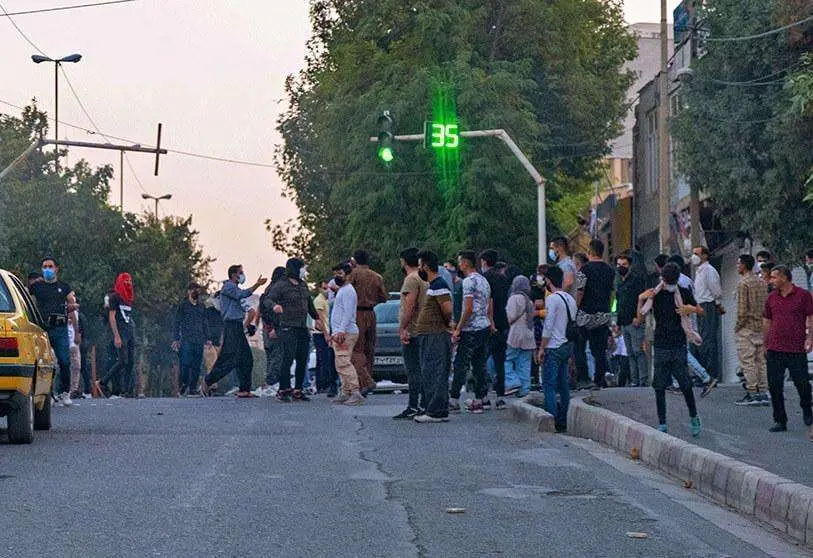Iranian security forces repression leaves 10 more dead in Zahedan, says Amnesty International

Zahedan, capital of the province of Sistan and Baluchestan, is the region that is experiencing the biggest wave of protests by Iranian citizens against the dictatorial regime of Ali Khamenei. As is to be expected in Iran, repression by the security forces is taking a heavy toll on the protesters. On this occasion, Amnesty International puts the number of people killed by the Revolutionary Guards in Zahedan, in the south-east of the country, near the borders with Pakistan and Afghanistan, at ten.
The protests have intensified and so has the government's response. This past weekend has been one of the toughest since the protests began in late September. According to activists and residents in the city of Khash, the riots were repelled with live fire by the authorities. Protesters marched from a mosque to the governor's house in the town, located 145 kilometres from Zahedan. Chants of "Death to the dictators" and "Death to Basiji" - the volunteer paramilitary force of the Islamic Revolutionary Guard Corps that has been involved in the brutal crackdown - were the most repeated during the protests.

Mulvi Abdul Hamid, imam of the central mosque in Zahedan, said on Saturday that "a number of teenagers and youths who gathered in front of the Khash city governorate and shouted slogans and started throwing stones were directly attacked with live bullets". He also said that the violence with which the government led by Ebrahim Raisi is responding is a clear sign of "the depth of oppression and discrimination" to which the country is subjected and which the population has been taking to the streets to protest for weeks.
Amnesty International has reported the deaths of 10 people, including some children. They also expressed concern "about further bloodshed amid internet disruptions and reports that the authorities brought more security forces into Khash from Zahedan". Even VPNs are no longer useful for communicating over the internet. Asif Burhanzai, a resident of Mirjaveh, told Arab News that "Most of our friends and relatives in Zahedan and Khash were using the internet through VPN, but after Friday, they couldn't connect through it either".

The death toll since the protests began stands at 304 people, according to Iran Human Rights (IHR). However, the IHR itself reports that the number may be much higher as "they have received a large volume of reports of deaths that they continue to investigate with internet outages", so the total death toll is "certainly higher". Up to 22 provinces have seen the deaths of Iranian citizens protesting against the regime, including Sistan and Baluchistan, Mazandaran, Kurdistan, Gilan, and the capital Tehran.
What is clear to Iranians is that "there is no turning back from this revolution", as Nilufar Saberi, an Iranian activist living in Spain, says. But they also know that putting an end to 40 years of Ayatollah rule is not so easy, and they are asking for the support of the international community, especially at a time when it is increasingly difficult to communicate with the outside world. There is a sense of caution in the West as negotiations on the Joint Comprehensive Plan of Action (JCPOA) are once again close.

Iranian Foreign Minister Amir Abdollahian announced last week that an Iranian delegation will come to Vienna to resume talks on a new nuclear deal. The aim is to continue to bring closer together positions with the International Atomic Energy Agency (IAEA), with whom, for the moment, there are still major disagreements. Moreover, there is a pessimistic view of the JCPOA, as some, such as the secretary general of the German Free Democratic Party, believe that "it has no future and does not fit with reality".
He also believes that taking up the agreement signed in 2015 and unilaterally abandoned by the United States under the presidency of Donald Trump in 2018 would imply "negotiating with an inhumane regime, which is completely rejected by its own people and has no legitimacy whatsoever", so that getting closer to their demands, as the context in the Iranian country is, seems complicated. Thus, the Iranian population continues to struggle in the streets, crying out for help from the international community, which is hamstrung by Iran's nuclear threat.








